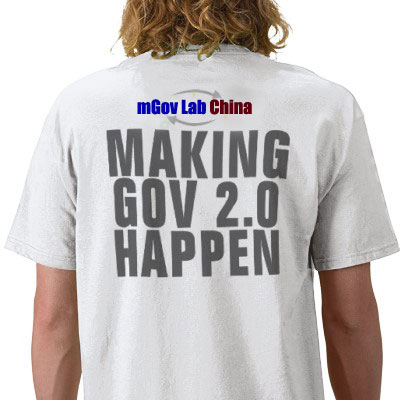
"Government 2.0: Governance in Perspective of Innovation 2.0" Seminar Held at Tsinghua University
The convergence and development of ICT pushed forward the paradigm shift of innovation which lead to further innovation in governance. "Government 2.0: Governance in Perspective of Innovation 2.0" seminar is held at Tsinghua University from 14th to 15th November, 2014. E-Government research academia across Chinese Universities, including Tsinghua University, Peking University, Fudan University, Nankai University, Wuhan University, Huazhong University of Science & Technology, etc., jointly launched this seminar. This seminar takes Online to Offline style, and has invited e-government practitioners and researchers to discuss the governance innovation in the era of Innovation 2.0.
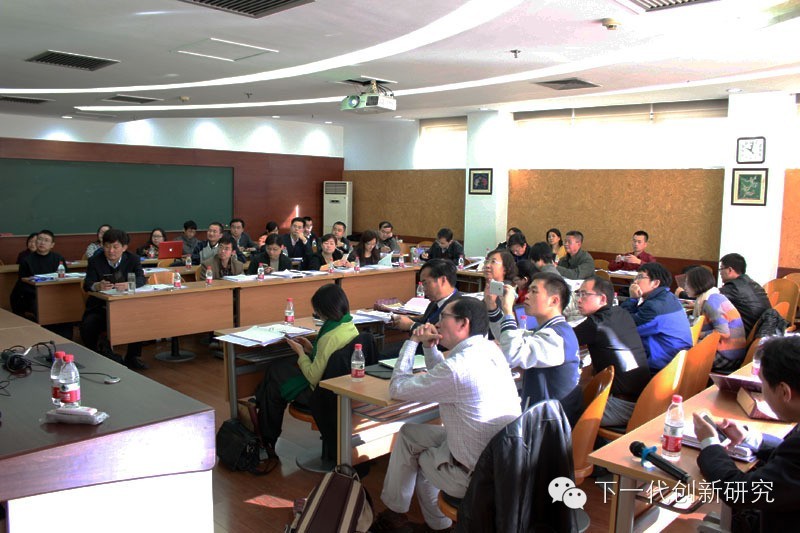
"Government 2.0: Governance in Perspective of Innovation 2.0" Seminar
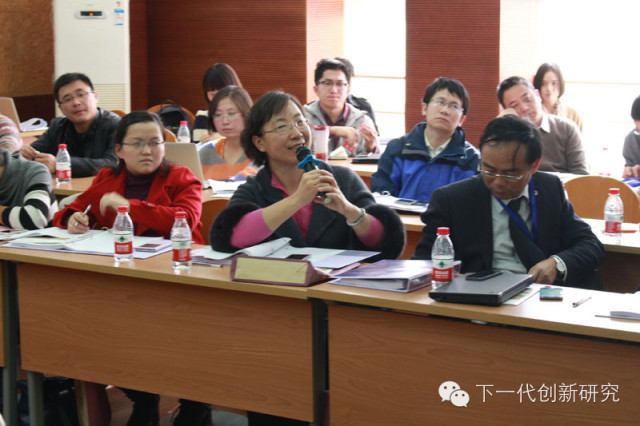
Hot Discussion
"Government 2.0: Governance in Perspective of Innovation 2.0" Seminar includes four parts. The first is three academic paper presentation sections: Government Innovation, Social Governance, Micro Government and Smart City. The Second part is Round table discussion on "The Academic Community of E-Government in Perspective of Innovation 2.0". The Third part is Government 2.0 Case On-Site Visit and Discussion. The fourth is the Discussion of Smart Ecological City in the Era of Innovation 2.0 at the OA Conference Forum.
Professor Qingguo Meng, Secretary General of School of Public Policy and Management of Tsinghua University, and laso Director of E-Gov Lab of Tshinghua University, addresses this Seminar. He argues to take advantage of the new generation of ICT and next generation of innovation in a knowledge-based society to push forward the research and practice of e-government in China. Government 2.0 is the government morphology in the era of Innovation 2.0, which is enabled by the new generation of ICT. Government 2.0 is government as a platform which is featured by user innovation, open innovation, co-innovation and mass innovation. It shapes public value and creates unique value for each citizen. It marks a paradigm shift in Government from a manufacturing paradigm to a service paradigm.
Dr. Gang Song, Director of mGov Lab China presented the case of Government 2.0 in Beijing: Smart City Administration based on "5 in 1" Internet of Things Platform in Perspective of Innovation 2.0. He specially shared the practice of "I Love Beijing" Government Wiki and APP and discussed about the transforming of the role of ICT as enabler of dialogue and discussion to the role of ICT as enabler of action and creation, the the transforming of role of ICT as enabler of deliberation to the role of ICT as enabler of collaboration. He argues the new opportunities of collaborative democracy in perspective of innovation 2.0, and argues government 2.0 as a platform, as well as a key player in forming the innovation ecosystem for user innovation, oepn innovation, co-innovation and mass innovation.
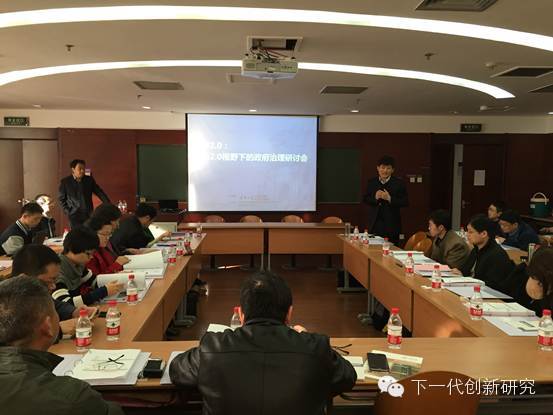
Professor Qingguo Meng, Director of E-Gov Lab, Tshinghua University, address this Seminar
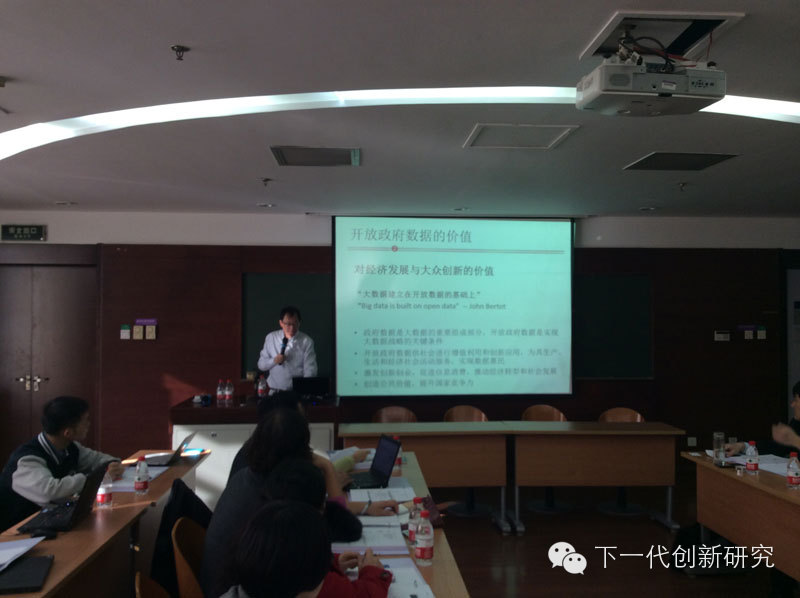
Seminar Sction 1: Government Innovation
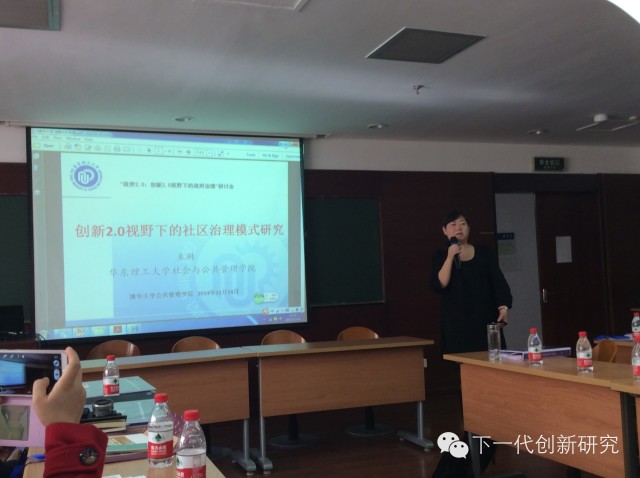
Seminar Sction 2: Social Governance Change

Seminar Sction 3: Micro Government and Smart Cities
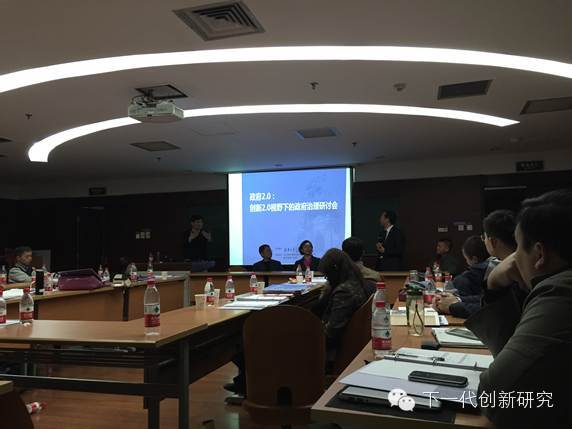
Roundtable Discussion: The Academic Community of E-Government in Perspective of Innovation 2.0
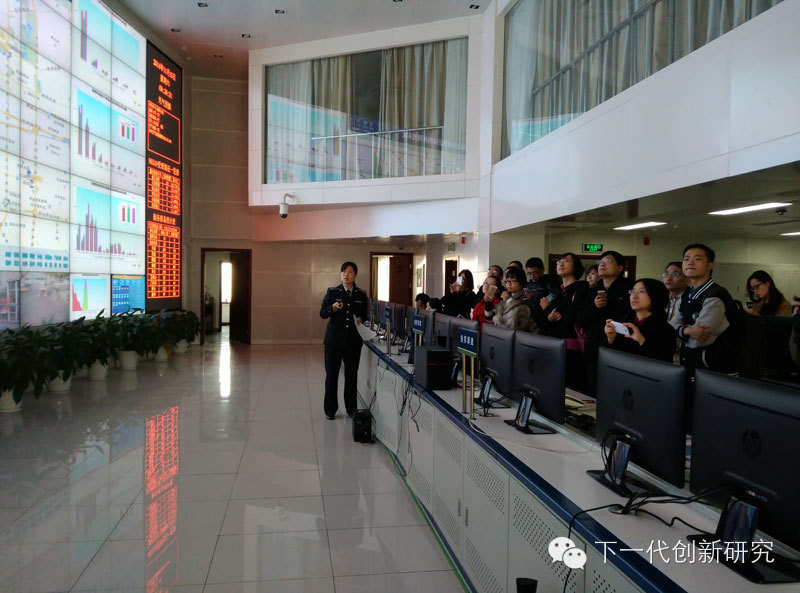
Visit to Beijing City Management Internet of Thing Platform and the Command Center
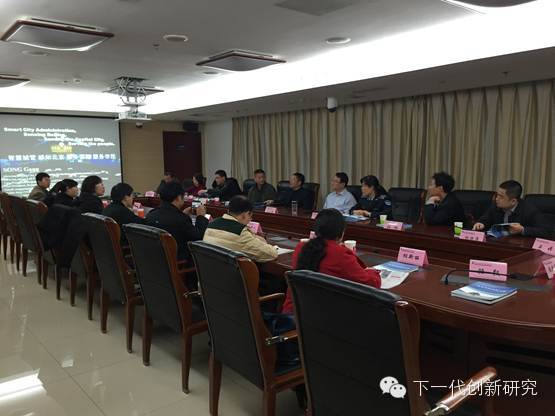
Government 2.0 Case On-Site Discussion: Smart City Management based on Internet of Things Platform
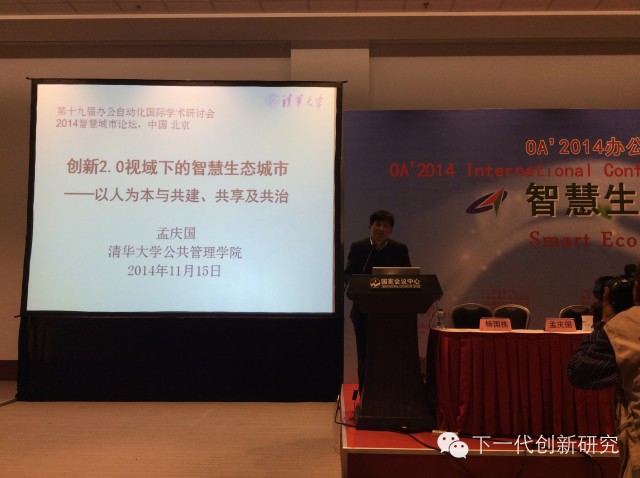
Conference Theme Report by Professor Qingguo Meng:
Smart Ecological City in Perspective of Innovation 2.0: Human-Centered Co-Governance
♦"Government 2.0: Governance in Perspective of Innovation 2.0" Agenda
(14th-15th, November, 2014)
